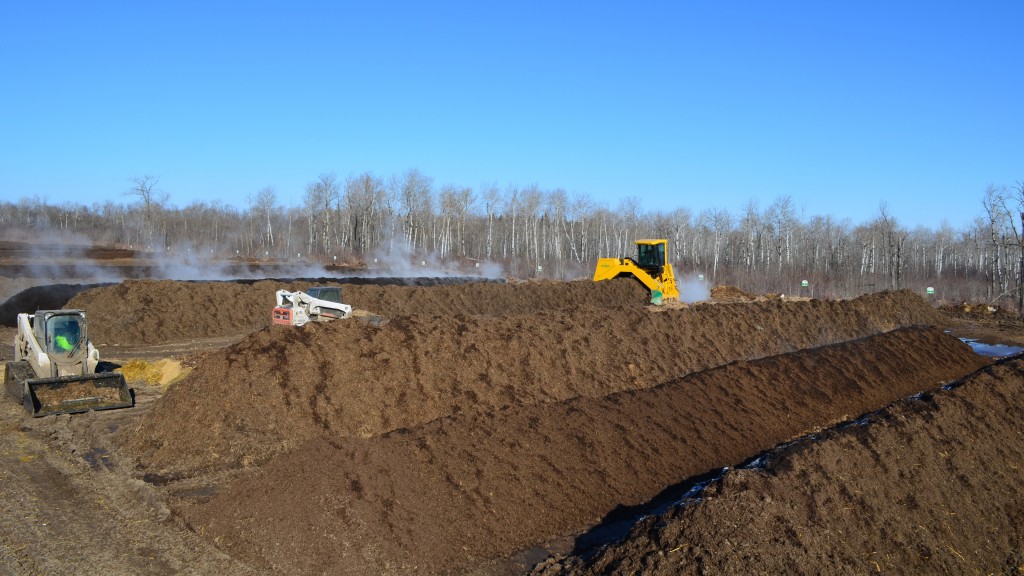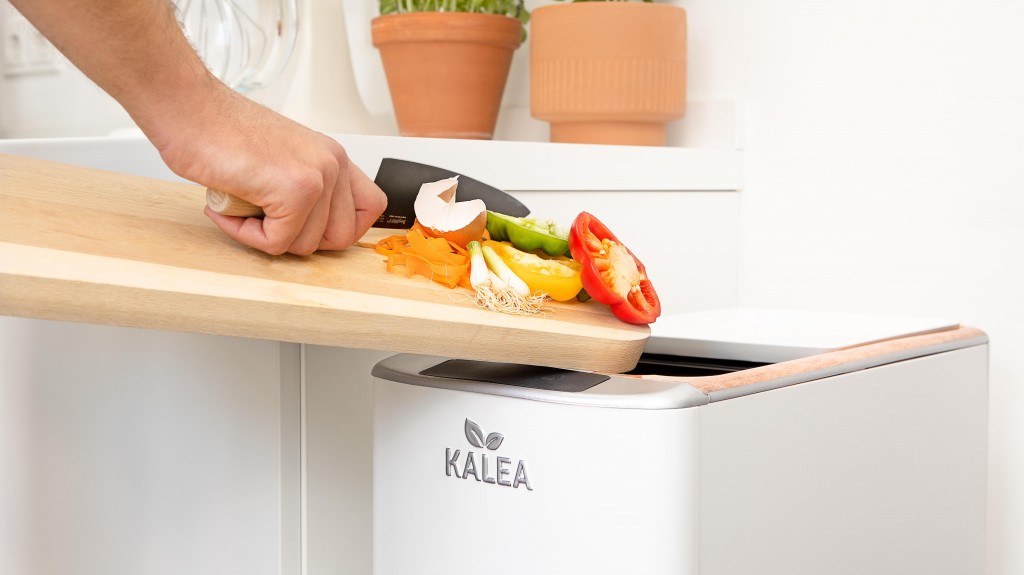
A new report released in the spring of 2022, Recruiting Soil to Tackle Climate Change: A roadmap for Canada, identifies how the advancement of composting and soil-carbon sequestration has the potential to play a major role in combatting the climate crisis. Developing our capacity and expertise in both of these areas will help create circular economies, reduce GHG emissions, improve carbon capture, and sustain our planet's soil ecology and food production. The report estimates that the proper management of our soils has the potential to completely offset greenhouse gas emissions from the agriculture industry, currently estimated at 73 megatonnes (Mt) annually.
Produced and funded by the Soil Conservation Council of Canada (SCCC), the Compost Council of Canada (CCC), and the Metcalf Foundation, this new report is a call to action for the Canadian government and other stakeholders to invest in the capabilities of soil. It includes input from soil health researchers and practitioners from across the nation, examples of Canadian farmers who are leading the way, and is meant to help define the actions and commitments required to rebuild carbon levels in Canada's soil.
Central to Recruiting Soil to Tackle Climate Change: A roadmap for Canada, are five fundamental principles which, if followed, will greatly boost carbon retention in soils. These are:
- Disturb the soil as little as possible;
- Keep live roots in the soil all the time;
- Optimize the use of inputs, such as fertilizers, soil amendments, and pesticides;
- Keep the soil covered; and
- Maximize diversity
According to Susan Antler, executive director of the Compost Council of Canada, these principles all have a common objective: to protect and enhance the community of beneficial soil organisms known as the soil food web.
"This underground network of living creatures, which ranges in size from microscopic bacteria and fungi to easily visible earthworms, is primarily responsible for all of the beneficial soil functions – fertility, water management, pest and disease suppression, and climate stability – that make life above ground (including our own) possible," says Antler.
Antler emphasizes that compost has an extremely important role to play in helping the soil food web do its job. Not only does compost provide energy and nutrition, but it also boosts microbial diversity.
"If you think of the soil food web as a workforce, you can see how compost not only helps to house and feed the workers but also expands their collective capabilities by adding specific expertise to the community," she explains. "This last point is vital. When a plant is looking for a specialist microbial partner to help it ward off a disease or provide an important micro-nutrient at a certain growth stage, it is more likely to find that partner in a soil with a large and diverse food web."
Overton Environmental's solution to help compost and soil-carbon sequestration
The fact that compost builds the capacity of the food web when added to soils is a fact not lost on Dale Overton, founder and CEO of Overton Environmental, and one of the Compost Council's Compost Quality Alliance (CQA) producers.
Overton Environmental, based out of West St. Paul, Manitoba, is one of many looking to advance composting and soil science. Dale Overton explains that they currently use very advanced methods of composting, including humified composting and vermiculture (worm and castings production) to grow specific functional groups of microbes which are used in producing EcoTea. This uniquely engineered liquid biological amendment is an inoculum infused with an organic blend of humous, fulvic and long-chain amino acids, Atlantic kelp extract, simple and complex carbohydrates, and enzymes.
Overton says part of what they do is to help farmers use biological organisms cost-effectively in large-scale agriculture. The biological community in EcoTea is selected to improve soil structure, root function/biomass, and the release of plant availability of NPK+ micronutrients in root zones.
"EcoTea provides plants with a community of functional microbes that will solubilize phosphorus or help to unlock nitrogen or mineral micronutrients, and it produces phytohormones and antibiotics," explains Overton. "In a lot of conventional agriculture, those microbes are gone. Because you're using fungicides and herbicides and you're using a lot of salt-based fertilizers and tillage techniques, you run into major decimation of these important microbial communities."
Another benefit of EcoTea is that it allows compost to be spread further. Instead of using 10 tonnes per acre of compost, end users can apply 10 or 20 gallons of tea, allowing for a huge increase in the area for which microbial enhancement can be realized.
"We build a vast amount of compost, turn it into a liquid, and one tonne of our compost can go on 500 acres," says Overton.
"Looking at the conventional agricultural sector, our seed dressings have really fit in because they allow farmers to use a product that's very cost-effective, low risk, and is biologically driven," he continues. "Instead of using a fungicide seed treatment, they can use our product, which not only provides a level of protection against pathogens, but it can also reduce required Nitrogen inputs by 10 percent or more.
"Our bulk compost has about 40 pounds of nitrogen per tonne, and it has phosphorous, and all the other elements. We're selling that at $10 per tonne. Right now, to buy those same nutrients that our compost has through any other source will cost you about $110 an acre."
Biological seed dressings like EcoTea expand the diversity of soil food web organisms accessible to the plant, allowing it to select specific microbial partners not otherwise present in the soil.
"The EcoTea product coats the seed with a large complement of functional microbes along with a specialized bio-stimulant blend," continues Overton. "This allows the plant to select for microbial partners directly from germination. Seed dressings are becoming more common on the farm in lieu of fungicides and really fit in well with regenerative farming. The best part about it all is that we make all our microbes using vermiculture and advanced composting methods."
Conventional agriculture is definitely where Dale Overton sees the biggest benefits for their EcoTea product, and they have a significant presence in the golf course and recreation industry, as well as in land reclamation and the greenhouse industry.
"We've got golf courses across the country, because our product is a really significant root stimulator, it actually enables golf courses to not only use less fertilizer, but actually use less water because the plants will have a bigger root system that's in contact with more of the soil," he explains. "When drought hits, they don't have to add as much water. That's where we've seen the biggest benefits in golf."
Overton also emphasizes the importance for all compost producers to be part of the CQA (Compost Quality Alliance), developed and implemented by the Compost Council of Canada, which involves testing for quality of the product that goes above and beyond government requirements, provides information on the nutritional value of compost, and helps product get to its optimal application. He says CQA certification is key to the advancement of the composting industry and soil-carbon sequestration.
"It's very important because a CQA test will really differentiate the quality of different types of products," he says, "whereas standard compost tests do not. The CQA test is much more in-depth. We're part of the program and I think it really helps maintain high standards in the industry."



